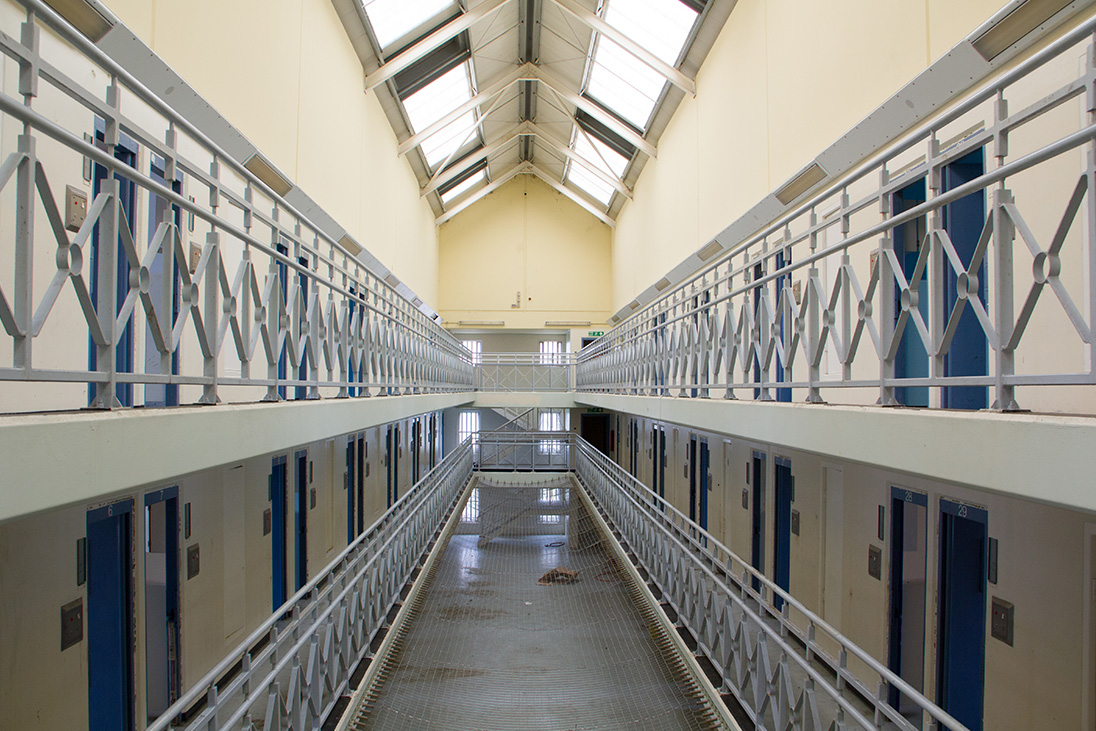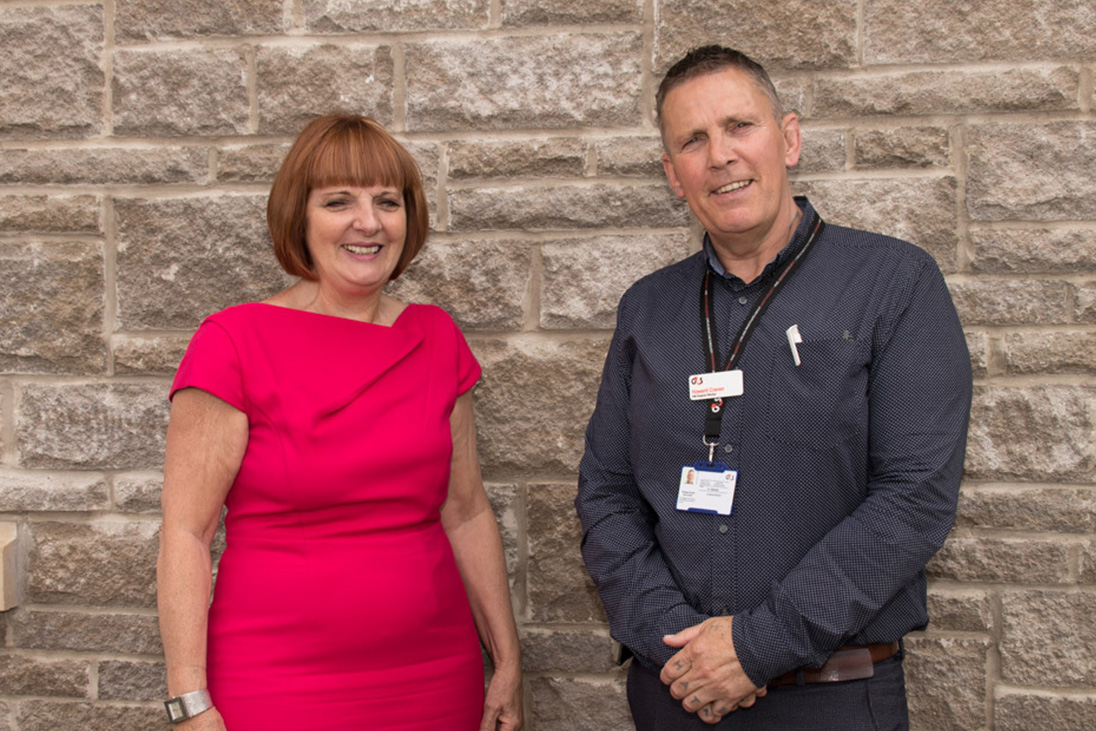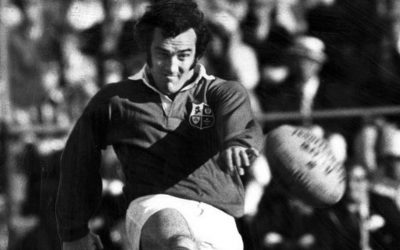The knuckle tattoo on either hand spelled the letters LOVE and HATE on each finger. As Howard Craven engaged in animated conversation with the prisoners about their heroes in life – and those they disrespected – this faded ink legacy was the only clue to inmates that he was once one of them.
Stood alongside, in a raspberry-coloured summer dress with matching, fashionable shoes, the quietly-spoken, flame-haired Alison Sutherland was asking a young man aboout his mother’s qualities which made her his hero.
Faced by nine prisoners inside a workroom at the category B HM Prison Parc near Bridgend, Mid Glamorgan, this was a most unlikely double act. It was Oliver Twist meets Mary Poppins.
What is remarkable, is that this implausible combination works. This was the second day of a Rotary-backed ‘You Can Change’ activity which helps offenders realise that change is possible and your past does not have to dictate your future.
Howard, who grew up in Swansea and taken into care at an early age, is a classic example of how this works.
“I was brought up in the care system,” he admitted. “I was placed in a detention centre at the age of 12 with my two brothers. Later in life I began taking drugs.
“I was drinking, I was having relationship problems – I was having a problem with society.
“I realised when I got out of prison in 2000, at the age of 36, that something had to change otherwise I would end up dead or in prison for the rest of my life. I had to learn how to live differently.”
It required a huge amount of self-discipline to move away from rock bottom.
Howard went on a 12-step programme to tackle a toxic combination of addictions; gambling, alcohol and drugs. And he made a conscious decision then that, if he was to properly rehabilitate, then he had to give something back to the community.
I realised when I got out of prison in 2000, at the age of 36, that something had to change otherwise I would end up dead, or in prison for the rest of my life. I had to learn how to live differently”
Now a Supporting Mentor for ‘Invisible Walls Wales’ and the Endeavour Unit at the country’s biggest prison, with 1,700 inmates, including lifers serving murder sentences, Howard has become an integral part of the work which helps Parc Prison inmates reclaim their lives.
Howard started work at HMP Parc in 2015 after spending many years supporting prison leavers in the community.
He was instrumental in setting up and running the Endeavour Unit, for former servicemen and first-time offenders coming into prison.
For the past two years, he has been delivering the ‘You Can Change’ activity alongside Alison, which aims to inspire and equip prisoners to return to their families and community where they can live fulfilled lives, free of crime.
This activity has been borrowed from PeaceJam, the international youth movement which has been nominated eight times for the Nobel Peace Prize. Over the three days, the prisoners are challenged on their views, prejudices, fears and hopes.
Videos play an important part, with films about the lives of Gandhi, Muhamad Ali and the American gangster, Stanley ‘Tookie’ Williams, who later preached a message of rejecting gangs and embracing peace.
“It is about trying to ignite beliefs and challenging attitudes,” added Howard.
“We are also trying to address the root causes of what brought them here in the first place. It is believing you can change, even if it is a small change.
“Some people get it, others don’t.”


The prison population in the UK has risen by 77% in the last 30 years, with 65,000 people sent to prison to serve a sentence in 2017.
Inside that room of nine inmates were a couple of teenage brothers jailed for drug dealing, sitting alongside a veteran of the legal system who was shortly due for release after serving a term for serious assault.
“It’s all about choices,” explained the veteran. “It’s all about making the right choices, but you have to make them in the environment you live.”
“I want to stop selling drugs and get a job when I get out of here,” said another. “I know I can make changes, but only small changes.”
Over the past two years, Howard and Alison have delivered eight sessions at Parc Prison for 128 prisoners under the umbrella of Rotary in South Wales 1150 and PeaceJam Wales.
“Mary Poppins and Oliver Twist is an interesting way of looking at it,” explained Alison. “Howard and I are different, but we compliment each other like good cop, bad cop, however we get the reaction and we seem to be getting the results.”
But how do you measure success with a programme like this? The ‘You Can Change’ activity is one of a number of building blocks provided at Parc Prison to help inmates once they have been released.
“What we are doing is sewing the seeds, what we don’t know is when they will bloom, or if they will bloom,” added Howard.


Alison Sutherland and Howard Craven have delivered the You Can Change programme to 128 prisoners over the last two years.
“We know they will have left us equipped with the knowledge to turn their lives around. The rest of it is up to them.”
Earlier this year, Howard was honoured for his work when he received a Rotary Community Champion award in Cardiff.
Presenting the honour, Denis Spiller, then president of Rotary International in Great Britain & Ireland, said: “Howard’s work has helped so many people who could easily have become lost causes and given support to their families.
“He is a very worthy recipient of the Rotary Community Champion award, and a great inspiration to show that they too can change if they wish to do so.”
Howard Craven added: “It was an honour to receive an award such as the Rotary Community Champion. When Alison and myself first started two years ago, we didn’t dream of receiving such acclaim – it is as much hers as it is mine.
“Rotary and I share a lot in common in that we want to help and make a difference to those who have become a little lost in life.”


























































